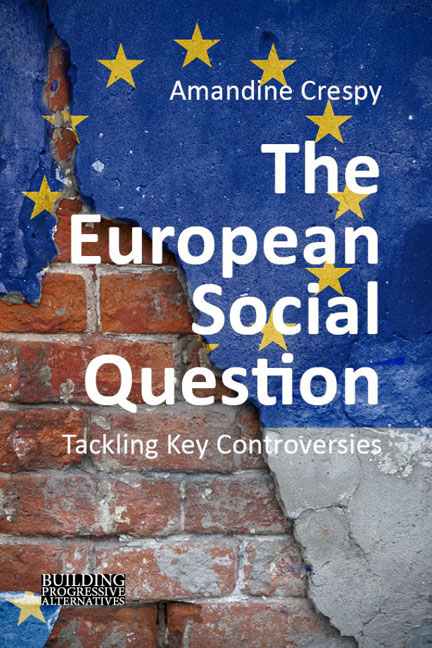Book contents
- Frontmatter
- Contents
- Acknowledgements
- Abbreviations and acronyms
- Dedication
- Introduction: “Social Europe” – irrelevant, catching up or dangerous?
- 1 What is the European social question?
- 2 Is the EU a key player in addressing social issues?
- 3 Are socially minded actors too weak in EU policy-making?
- 4 Is European social regulation a thing of the past?
- 5 Does liberalization undermine social cohesion?
- 6 Does the European social dialogue really protect European workers?
- 7 Does soft coordination support welfare states?
- 8 Is redistribution unconditional?
- 9 Is the EU fit for the social challenges of the twenty-first century?
- Conclusion: from the social question to the democratic question
- Index of CJEU judgments
- References
- Index
7 - Does soft coordination support welfare states?
Published online by Cambridge University Press: 20 December 2023
- Frontmatter
- Contents
- Acknowledgements
- Abbreviations and acronyms
- Dedication
- Introduction: “Social Europe” – irrelevant, catching up or dangerous?
- 1 What is the European social question?
- 2 Is the EU a key player in addressing social issues?
- 3 Are socially minded actors too weak in EU policy-making?
- 4 Is European social regulation a thing of the past?
- 5 Does liberalization undermine social cohesion?
- 6 Does the European social dialogue really protect European workers?
- 7 Does soft coordination support welfare states?
- 8 Is redistribution unconditional?
- 9 Is the EU fit for the social challenges of the twenty-first century?
- Conclusion: from the social question to the democratic question
- Index of CJEU judgments
- References
- Index
Summary
After four decades of European integration, the coordination of national social policies emerged in the late 1990s as an alternative to EU-binding regulation. In several areas (labour markets, social protection, healthcare, elderly care and the fight against poverty and exclusion) European leaders felt the need for coordinated responses without transferring new competencies to the EU institutions. Voluntary non-legally binding coordination thus emerged as an alternative to regulation. Inspired by the broad economic policy guidelines established in the run-up to the monetary union, soft coordination was then applied to employment policy and progressively formalized and extended to a larger range of public policies under the so-called open method of coordination (OMC). The OMC is therefore based on the willingness of national governments to implement policies aimed at reaching objectives that have been defined at the European level. The implementation of these policies is also monitored on the basis of indicators set out by national civil servants who meet in Council working groups and committees in Brussels. Coordination occurs through a forum aimed at forging a shared consensus on policy problems and adequate solutions or policy recipes. This environment creates incentives and pressures that can potentially be exploited by domestic governments to implement reforms. In the aftermath of the 2008– 10 financial and debt crisis, existing OMC processes were consolidated into the European Semester, an all-encompassing governance framework combining binding regulation and soft coordination. The European Semester serves as the basis for the review of national budgets, the control of fiscal discipline (the Stability and Growth Pact), the monitoring of macroeco¬nomic imbalances and monitoring issues around social cohesion.
At its inception, the OMC triggered great interest and enthusiasm from academia. Many specialists of social policy saw it as a means to tackle common problems while preserving national sovereignty in the social realm. Since member states could not agree on transferring competences to the EU, nor on a single policy model for addressing social cohesion, monitoring and benchmarking, a system of ongoing dialogue was set up to resolve disagreements (Radaelli & Borras 2010: 24). The OMC was also depicted as a form of “experimental governance” (Sabel & Zeitlin 2008), epitomizing a modern way to tackle the difficult dilemmas involved with welfare state reform based on learning (Dunlop & Radaelli 2016) and peer review.
- Type
- Chapter
- Information
- The European Social QuestionTackling Key Controversies, pp. 135 - 162Publisher: Agenda PublishingPrint publication year: 2022

